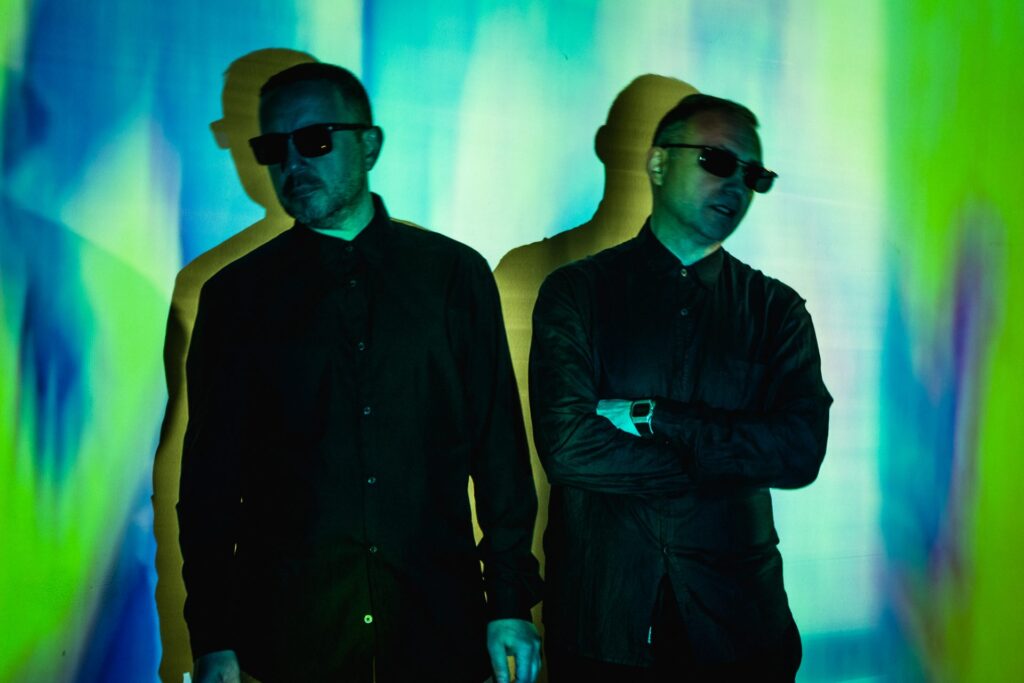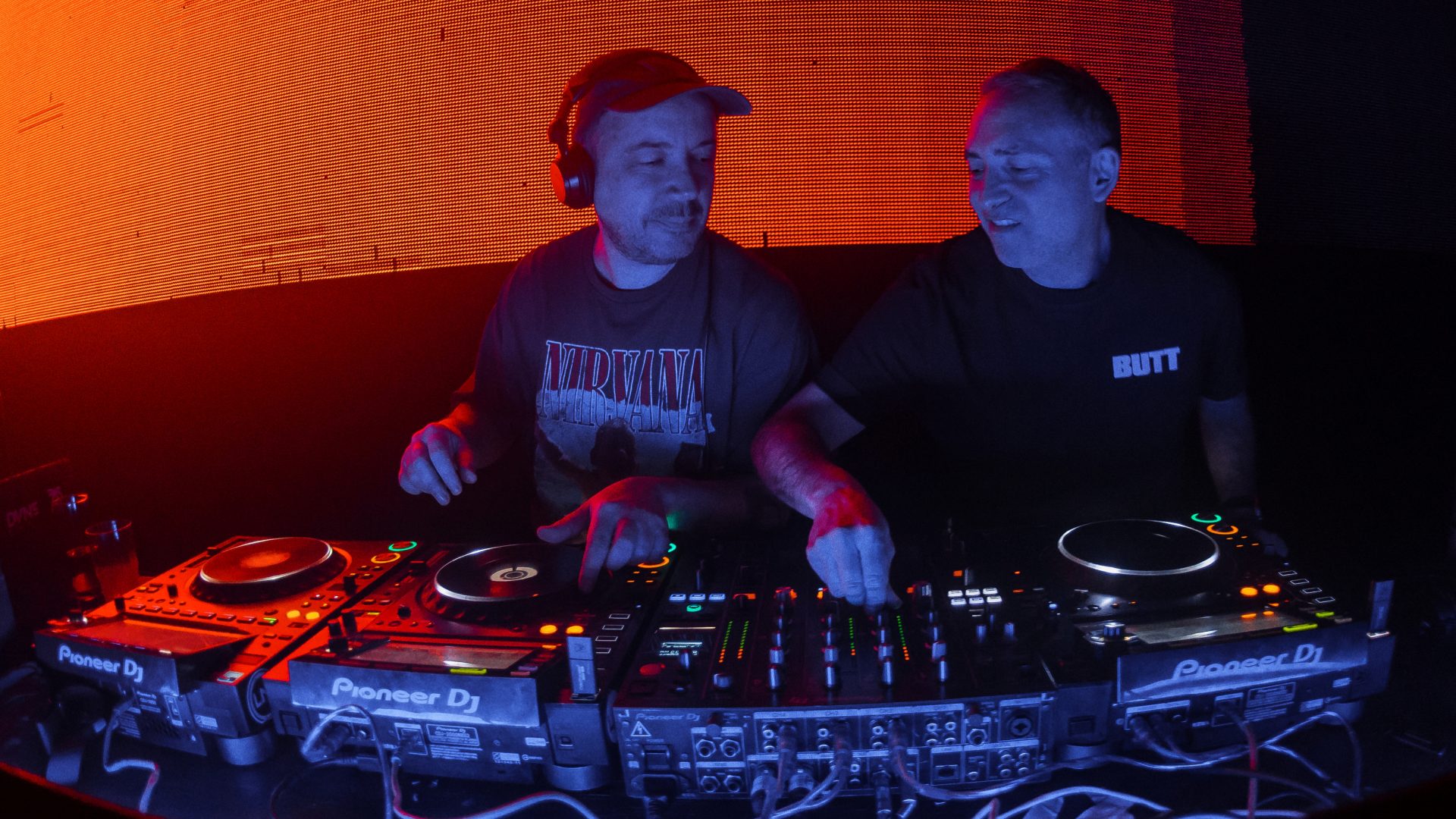Happy Pride Month! LGBTQIA+ communities are inextricably linked to all forward-moving aspects of modern music and culture. From House taking shape in safe havens like The Warehouse to trailblazers like Honey Dijon and Big Freedia, the world has moved to the beat of these communities. Mixcloud certainly wouldn’t exist without these impactful contributions and, in a world that still attempts to diminish, persecute and discriminate against queer people, they continue to endure and reinvent the musical spaces we all live in. Central to this idea is nightlife, where parties and clubs have been crucial to the growth and overall safety of these communities and the sounds that came from them.
Over in Argentina, DJs Pareja are a testament to this fact. The Buenos Aires-based duo of DJs and producers have played in the most important clubs and festivals in the country and all over the world since 2000, taking their personal and eclectic style with them wherever they go. The duo have been integral in spearheading the new generations of House and Techno in South America in the 21st century, releasing records via the amazing Cómeme record label. As a result, they’ve had a hand in building a thriving dance scene in Argentina and across the continent.
Brought together by the dancefloor over 30 years ago, they fell in love and joined forces as a musical duo, but at their core, the dancefloor remains a key part of their relationship and the queer communities they represent.
We spoke to DJs Pareja about the Buenos Aires queer scene, why the dancefloor still matters and what Pride Month means to them.
Contents
- 0.1 How did you two meet and when did you decide you wanted to become a DJ duo?
- 0.2 As DJs and musicians, how do you think you two make each other better? What’s your working relationship like?
- 0.3 What are your proudest moments as a duo so far?
- 0.4 What does the dance floor mean to you?
- 0.5 What do you think the impact is of queer communities on modern nightlife around the world?
- 0.6 In your time going to clubs and parties, do you think they are a safer place for queer communities now?
- 0.7 What are some of the best or up and coming queer parties or events right now?
- 0.8 How do you think queer communities are influenced by what happens in music and culture today? Are they at all?
- 0.9 Tell us about Buenos Aires’ nightclub culture for the LGBTQIA+ community; who are the big players in that space?
- 0.10 What are some of the major changes in the scene in Argentina since you’ve been clubbing?
- 0.11 What do you want to see more or less of, in Buenos Aires’ queer nightlife scenes?
- 0.12 The impact of queer communities on nightclubbing is indelible. But do you see any major developments in the ways that queer communities engage with these spaces in the future?
- 0.13 What does Pride Month mean to you? How will you celebrate it?
- 1 Share this:
How did you two meet and when did you decide you wanted to become a DJ duo?
DJs Pareja: We met in 1993 at a legendary underground club in Buenos Aires called The Age Of Communication, where DJs would play House music. We were chilling on the rooftop of the club, we exchanged glances. It was love at first sight. We started dating and then in 2000, not only did we start living together, but we also became DJs Pareja. We were very much into the music and art scene, we made lots of friends clubbing, going to parties, art galleries, and going to see bands. Friends who were also in the scene convinced us to start DJing.
As DJs and musicians, how do you think you two make each other better? What’s your working relationship like?
We really respect each other’s ideas, personalities and points of view. We let each other be ourselves. Music wise, we are constantly motivating each other on different ideas and projects and exchanging opinions.
What are your proudest moments as a duo so far?
Many, at the beginning when we started to DJ along with other DJs we loved and admired. When we released our first album Versatil? in 2004, which is still loved by many. When we receive comments saying we have changed someone’s day by dancing to our music. Also, closing the Pride Parade here in Buenos Aires in the last couple of years is a moment we really feel proud of. Seeing thousands of people dancing to our music and being happy on such an important date is amazing!
“To a greater or lesser extent over time, music and culture have been influenced by queerness.”
What does the dance floor mean to you?
Everything! Music is our lives. We love dancing, period. It is the place to be yourself, to express yourself, connect with strangers and create long-time memories with friends. They create a safe place. Sharing such pure joy with other human beings is beautiful. We always say that you are not a true DJ if you haven’t spent thousands of hours on the dancefloor dancing to other DJs.
What do you think the impact is of queer communities on modern nightlife around the world?
We all know it is not a new thing, but now it’s big, bigger than ever, which is great! We think that when dance and electronic music culture started in the 1970s and 1980s, it was something we all knew about: displaced, marginalized, Black, queer, and gay people. In the 1990s, that remained somewhat, but we feel like it was forgotten in the 2000s. However, in recent years, it’s returned to the roots of what it was. What we’re experiencing now is a return to the roots of what the clubbing and nightlife were, albeit a bit more commercialized these days.
In your time going to clubs and parties, do you think they are a safer place for queer communities now?
Well, we don’t see a big difference to be honest. It has always depended on the club. The club where we met in 1993 was a safe place for queer people even though the crowd was mixed. We think people used to mix much more in the past which created more friction. Now it is safer because you know you go to a queer club or party where there are rules you have to respect.
What are some of the best or up and coming queer parties or events right now?
There are many here in Buenos Aires. Our party Fun Fun is one of them, although we have never marketed it as a queer or gay party. But you have DJs Pareja as residents so things speak for themselves. It is an inclusive party for everyone who wants to come and dance with respect to each other. You also have really good parties like Loca, Missa and Demi Mond just to name a few.
How do you think queer communities are influenced by what happens in music and culture today? Are they at all?
No, we think it is the opposite. To a greater or lesser extent over time, music and culture have been influenced by queerness.

Tell us about Buenos Aires’ nightclub culture for the LGBTQIA+ community; who are the big players in that space?
There are many but our faves are DJ Camila Isabel and her party Missa, DJ and House producer Tom Tom Clubber, party promoters Fa and La Tigra and The Loca Crew, DJ and gay memorabilia collector Ilsa Wolf, the Demi Mond party and DJ and performer Mabel.
What are some of the major changes in the scene in Argentina since you’ve been clubbing?
People are much more extroverted now, both with their bodies and their clothing, compared to a few years ago. The attitude is also more sexualized, as is happening everywhere. We don’t think it’s good or bad, we don’t do it cause we’re just a little shy! Another change is that parties can now be more specific, in terms of music. For example, some are more oriented toward House, others toward Techno, and still others more toward Latin, Perreo, urban music etc. While others are more mainstream, just for a fun night out.
What do you want to see more or less of, in Buenos Aires’ queer nightlife scenes?
Nothing special really. Luckily the scene in Buenos Aires is pretty big, and there’s something for everyone every weekend.
The impact of queer communities on nightclubbing is indelible. But do you see any major developments in the ways that queer communities engage with these spaces in the future?
Anything can happen, everything is constantly changing, and it is what is expected to happen.
What does Pride Month mean to you? How will you celebrate it?
It’s great because the homophobes have a super uncomfortable month. Also, it can serve as a source of reflection and remembrance, all the struggles that have always existed in our community, and those that continue, because there will always be negative reactions. Pride is not celebrated in Argentina during June but 28th June marks International LGBT+ Pride Day and on that date there are a few events around the city. The Pride parade, which is the biggest LGBTQ+ event in the country, takes place the first Saturday of November every year. That night, we are going to do a special Pride edition of our party Fun Fun. That’s how we will celebrate.
